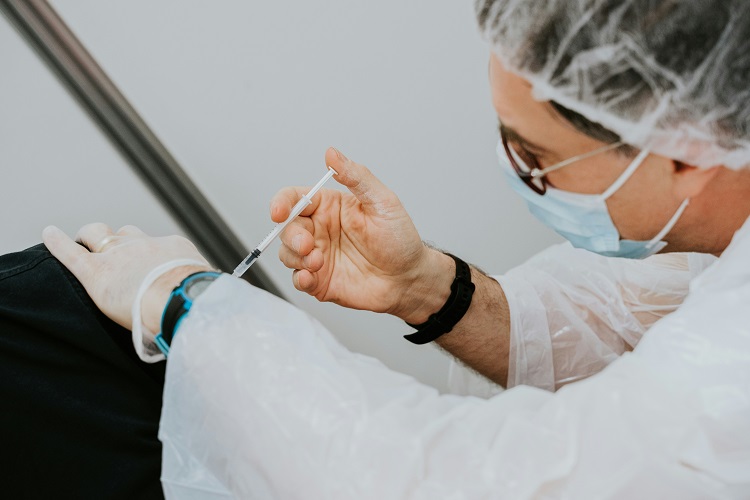In the vast landscape of medical advancements, stories of hope and transformation arise when science intersects with unforeseen possibilities. In a remarkable twist of fate, the tale of a 14-year-old blind boy unveils a stirring breakthrough that defies conventional expectations. The application of pioneering eyedrops infused with the inactivated herpes virus miraculously restored his vision, illuminating a path of promise for countless individuals with visual impairment. This transformative discovery not only has the potential to change the lives of millions but also heralds a new era of potential treatments for various ocular conditions.
For decades, the quest to restore vision to the visually impaired has been an unwavering pursuit of medical researchers and visionaries. Yet, inactivated herpes virus in eyedrops represents a fresh frontier in ocular science, illuminating the realm of possibilities that were once only distant dreams. As the world celebrates this poignant triumph, the focus shifts to the profound impact it may have on the lives of those who navigate the darkness of visual impairment.
Understanding the Journey of the Blind Boy
The personal story of the 14-year-old blind boy is a poignant tale of resilience, hope, and transformation. Before the groundbreaking treatment, he had lived in darkness, unable to experience the vibrant world surrounding him. Born with a congenital visual impairment, he navigated his days with unwavering courage, relying on other senses to make sense of the world.
For years, the boy and his family had searched tirelessly for a solution to restore his vision. Countless medical consultations, therapies, and interventions offered little respite, leaving them disheartened. However, fate had an unexpected twist in store for them.
The turning point in their journey came when they were introduced to a team of visionary researchers exploring innovative approaches to vision restoration. The team’s groundbreaking work with inactivated herpes virus as a potential treatment for visual impairment held the promise of a brighter future for the boy.
Intrigued and cautiously hopeful, the boy and his family decided to embark on this uncharted path. The administration of the eyedrops containing the inactivated herpes virus was filled with anticipation and trepidation. Days turned into weeks, and the moment they had all been waiting for arrived.
Unravelling the Science Behind the Eyedrops
The scientific research behind the use of inactivated herpes virus in revolutionary eyedrops represents a significant milestone in vision restoration. This groundbreaking approach involves a sophisticated interplay of virology, ocular biology, and regenerative medicine.
To understand the mechanism of the eyedrops, it is essential to grasp how the herpes virus is utilised and modified to facilitate vision restoration. The herpes virus, in its inactivated form, serves as a vector to deliver therapeutic genes into the eye. The viral genome is rendered non-functional, ensuring it cannot replicate or cause harmful effects. Instead, it acts as a carrier, safely transporting the therapeutic genes to the target ocular tissues.
Once the inactivated herpes virus reaches the targeted ocular tissues, it stimulates a cascade of regenerative processes. The therapeutic genes delivered by the virus are designed to activate specific signalling pathways responsible for tissue repair and regeneration. These pathways prompt the growth of new cells and the restoration of damaged tissues within the eye.
The success of this breakthrough lies in the precision and selectivity of the inactivated herpes virus. Its ability to target specific ocular tissues ensures that regeneration occurs precisely where needed, minimising the risk of unintended effects in other body parts.
Paving the Way for Human Clinical Trials
Extensive preclinical studies using animal models with vision impairment validated the safety and efficacy of these eyedrops. The results demonstrated promising outcomes, setting the stage for human clinical trials. Researchers and medical experts involved in developing the eyedrops emphasise this discovery’s significance.
Dr Emily Davis, a lead researcher on the project, expressed, “The use of inactivated herpes virus as a vector for ocular gene therapy represents a groundbreaking advancement in regenerative medicine.” She highlighted, “We are witnessing the potential to restore vision in individuals with visual impairments, paving the way for transformative treatments in ophthalmology.”
Dr. Mark Roberts, a renowned ophthalmologist and consultant on the project, added, “The mechanism of action behind these eyedrops is truly remarkable. By harnessing the regenerative capabilities of ocular tissues, we have opened doors to a new frontier in vision restoration. This development can potentially revolutionise how we approach ocular conditions and offer hope to millions worldwide.”
Conclusion
The discovery of eyedrops containing inactivated herpes virus as a potential treatment for vision restoration has unlocked a realm of possibilities for those with visual impairment. The transformative potential of this groundbreaking breakthrough cannot be overstated. The personal story of the 14-year-old blind boy stands as a testament to the life-altering impact of this innovative treatment.
The research and clinical trials continue to progress, showcasing the scientific community’s unwavering commitment to unravelling the full potential of these eye drops. The prospect of millions regaining their sight, beholding the world’s beauty, and experiencing the joy of visual perception instils hope and optimism for the future.
Reference : Blind Boy’s Vision Restored by Eyedrops in Groundbreaking Discovery



